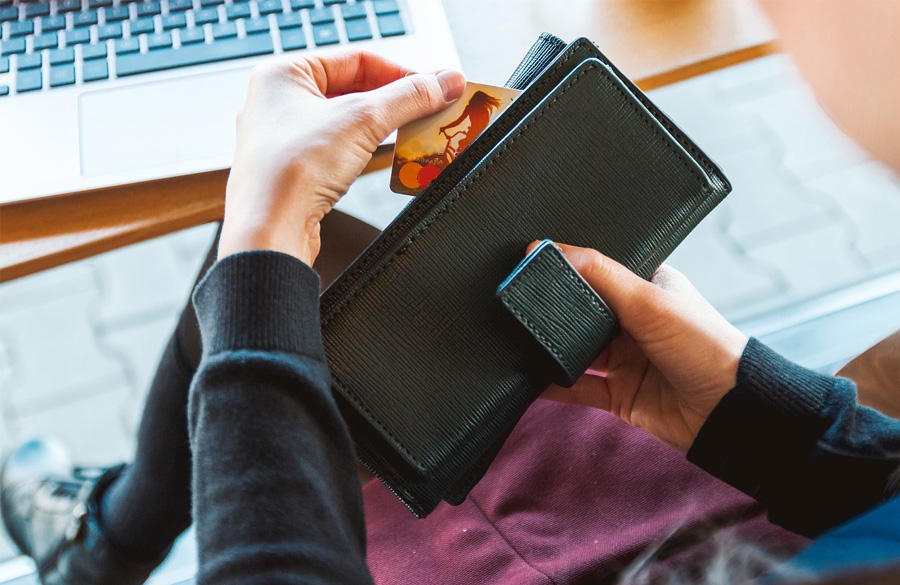How To Stay Safe And Protect Your Financial Information When Paying Online
We do practically everything online these days, and that includes a whole lot of financial transactions. Even if you're one of the few that doesn't use internet banking, chances are you make online payments in some capacity. And the good news is, these days it's usually perfectly safe to do so. However, online fraud does still happen, so here are some vital tips to keep your finances safe.
Scam Detectors Most Trusted Websites in Online Security
- Guard.io (100): Surf the web safely. Clean up your browser, remove maliscious extensions and check for privacy violations.
- Incogni.com (100): Delete your personal data from the internet and protect against scams and identity theft.
- ExpressVPN (100) Stay secure and anonymous online - Best VPN Out There
- IPVansish (100) Fast VPN to stay safe and secure online with multiple discount plans.
1. Password Management
We all know what we should do, which is have a different password for every online account that we use and change them regularly. Putting that into practice can be very tiresome, so most of us don't bother. Luckily, these days, there are password managers who will do the hard stuff for you while keeping your passwords safe. Accepted wisdom on strong passwords is that they should be a random collection of letters, numbers, and symbols, but research shows that length is the single most significant factor in password effectiveness. The longer the password, the more secure it is.
2. Use Trusted Sites Only
There are many businesses, big and small, operating online. However, if you really want to stay safe, it's best to stick to using a few secure and trusted sites when paying for any goods or services. A growth area is online casinos, but with so many on the market and new ones arriving all the time, how can you know which ones to trust with your money? All trustworthy casino sites hold licenses and are regulated from recognized jurisdictions, and you can visit a source like new-casino.ca to find out which ones are legit.
3. Protect All Devices
Most of us have some anti-virus and firewall software on our home computers, but even today, many people leave their smartphones unprotected. It's just as easy to download this software for mobiles, and just as important.
4. Stay up to Date
You need to know what's going on with your accounts at all times. One of the simplest things you can do is to check your account at least once a week to make sure that everything is in order. If you notice something amiss, contact your financial service provider immediately. Another thing to keep up to date is your operating system; set your device to enable automatic updates, which includes security patches.
5. Use Secured Networks Only
Public networks are not safe to use when making any financial transactions online. Have a little patience and wait until you can use a secure network before carrying out any sensitive activities.
6. Be Suspicious
Fraudsters are constantly looking for ways to breach your security and get your financial information. Most of us are wise to such tactics, but as a rule you should never follow links that are sent via email or give away information over the phone when you have been contacted by someone claiming to represent a financial institution. Always access your accounts directly from the address bar, and if your bank claims to be contacting you by phone, hang up and contact them yourself.
7. Be Wary of Online Deals
We all know the saying, if it seems too good to be true, then it probably is. Some of the deals that we see online can be almost too tempting to resist, but it's often just another way to scam you into spending money on a product or service that is either inferior or simply non-existent. Some of these scam companies advertise on platforms that we trust, and so we are inclined to extend that trust to the advertiser, which is a mistake. A few minutes of research is often enough to find out if a company is what they claim to be.
Verify a website below
Are you just about to make a purchase online? See if the website is legit with our validator:
vldtr®


TOP 4 MUST-WATCH FRAUD PREVENTION VIDEOS
1. Top 5 Amazon Scams in 2024 2. Top 5 PayPal Scams in 2024 3. How To Spot a Scam Email in 2024
- Latest Posts by Selma Hrynchuk
-
Compromised Credit Card Scam
- -
Fake Google Chrome Update
- -
Facebook Privacy Notice Hoax
- All Posts













